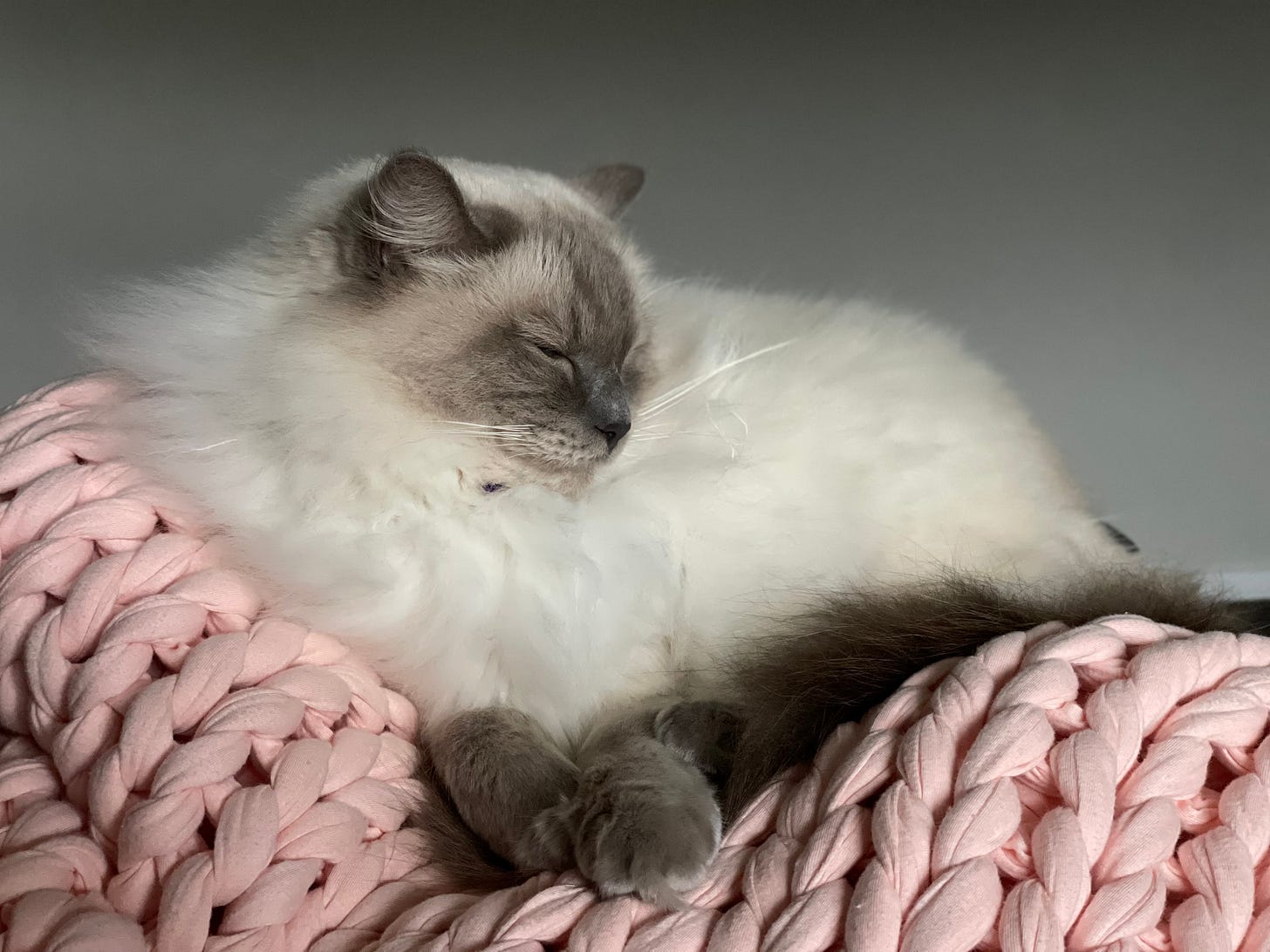The Auti Peri Q&A: What Autistic Perimenopause Means To Us
Amplifying Voices and Elevating Understanding
Hi, I’m Sam (she/her). A late diagnosed neurodivergent woman, a tenacious midlife struggler, and an advocate for people in autistic perimenopause here at The Autistic Perimenopause: A Temporary Regression AKA The Auti Peri.
I am delighted to be the host of The Auti Peri Q&A Series!
In this series, I host a Q&A interview with a fellow autistic person about their experience of the menopause transition.
Everyone’s experience of the autistic menopausal transition is different. I aim to elevate the voices, lived experiences and reflections of autistic people’s menopausal transition.
Autistic perimenopause is a highly individual, dynamic and sometimes prolonged life stage caused by reproductive hormonal fluctuations. As autistics can be highly sensitive to bodily and environemntal, we may experience fluctuations as physical, psychological and cognitive symptoms.
Academic research into auti peri is in it’s early stages, yet it is a matter or urgency that we bust the social taboo and get used to talking about this.
The following post is a roundup of all the amazing Auti Peri Q&A Series interviewees’ responses (so far) to the question:
What does “autistic perimenopause” mean to you? 💕
To me, “autistic perimenopause” means navigating two overlapping storms at once. On one side, there’s the physical and emotional chaos of perimenopause—hot flashes, mood swings, brain fog—but autism makes everything louder and harder to untangle.
Sensory sensitivities go into overdrive, emotional shifts feel even more intense, and the lack of awareness about how these two experiences intersect can leave you feeling lost.
For me, it was confusing because I didn’t even know perimenopause was a thing. I thought it was just my autistic brain reacting to stress or overstimulation.
In reality, my body was going through changes I didn’t understand, and autism amplified every moment of it.
To be honest I hadn’t heard of this until very recently, I’m now 58 and post menopause. And only just officially diagnosed autistic at 57 though I always knew I was weird and different. I’m glad it is now getting press as it could help people a lot to understand how it can impact.
Honestly, I don’t really know! I’m still figuring out myself as an autistic person, and figuring out perimenopause at the same time. I feel like I’ve had so little support and guidance on either element, that I’m still stumbling around, not quite in the dark, but in very hazy light.
I had to figure out both things for myself. I didn’t work out that I was autistic until I was in my late 30s, and I only realised I was entering perimenopause last year, although I suspect it had been sneaking up on me for a year or so previously. What the two mean in combination is a question I haven’t even begun to understand yet!
Perimenopause, but on steroids! As autists we often experience the world more intensely. So it follows that as autistic women we would experience a heightened response to The Change.
Going by what friends have said perimenopause seems to be a complete nightmare for a lot of people whether autistic or not.
For me I think the AuDHD made the sensory parts harder especially the crawling skin, and also the mood swings and turbulent emotions were extremely difficult to deal with. It also magnified the ADHD side of my AuDHD, and I had some really awful periods of inertia.
It felt like life was even more difficult, almost impossible to function.
I am not actually sure when perimenopause symptoms started to change how I was experiencing life – the only way that I can describe what happened, is to say that I 90% stopped functioning and my physical health was impacted massively.
The mental health impact was what lead to me discovering AuDHD, and getting assessed. It has been an extremely difficult few years, with health concerns now being referred to specialist teams.
I have found it difficult to express what I am experiencing, and for any of it to be fully heard. Now I am more hopeful.
Because I found out about my AuADHD after my menopause happened, I guess for me it’s all about stripping away the masks, the pretences that I’ve had all my life.
I feel like a new person and I often say I really don’t know who I am anymore and I definitely don’t know who I am becoming. So I guess it means quite a lot to me really now I think about it.
For me the term acknowledges co-morbidities exist. Both autism and perimenopause co-exist and can interact. They might be next door neighbours and make life more difficult, or they layer on top of each other and make that weighted blanket on your shoulders even heavier.
Autistic perimenopause validates that menopause is a unique experience for autistic humans.
Because autistic perimenopause has been intertwined with recovery from autistic burnout, I sometimes struggle to parse out what is what. But if I could distill it down, I’d summarize perimenopause as an experience of heightened sensitivity to my environment that has led to:
· A reckoning with my limitations
· An invitation to surrender into what is now possible within those limitations
In my personal experience, symptoms of the menopause transition have been very extreme. They began at an earlier age (mid 30s) for me compared to the average, which isn’t uncommon for autistic people. I don’t know why some autistic people may start perimenopause younger than non-autistics. Some autistics are hypersensitive to internal changes, including the effects of hormonal fluctuations on our body and mind. We also may be aware of their effect sooner, before they become more frequent/severe.
Changes can be unbearable and adversely affect my functioning and capacity to cope with everyday demands. Until I had a Mirena inserted, my sensory overload was increased in perimenopause with random menstrual and back pain, headaches, joint pain, skin dryness, dry eyes, spontaneous bleeding, and general unpredictability around my health, mood and wellbeing. Fortunately my experience of severely debilitating symptoms in my menopause transition is not the case for all autistics.
Up until midlife, I was mostly able to channel my energy and intellect into socially masking and compensating for my constant, numerous challenges. When autistic perimenopause started, everything fell apart.
I had masked so well and for so long that I had no idea I was even autistic before perimenopause began. I had always had a general inkling that I was different from everyone else, but for no discernible reason. The gap between my peers and I widened when life as I knew it became unbearable in the early stages of my autistic perimenopause.
I was so emotionally and sensorially dysregulated, that it became impossible - and undesirable - to continue masking.
As is the case for many late diagnosed females, seeking diagnostic assessments for our own children in this life phase is often the catalyst for self-diagnosing our own neurodivergence. I happened upon signs of female autism after researching the topic regarding my kids, and saw how it made sense of my own life until that point. So midlife is often extremely complex for neurodivergent women.
Many consider it liberating, but I am not yet at that point.
The shame and confusion caused by our unconscious and involuntary masking can present with increased meltdowns, shutdowns and regression in our communication and skills.
Imagine brain fog, but instead of wondering why you walked into the room, you may wonder why you exist in this realm, and why you have had to evade social rejection your entire life.
Imagine a hot flush, but instead of unbearable sweating and discomfort, you become hysterical and no longer want to be inside your own skin.
Imagine not knowing why you feel the way you do, but instead of seeing your own GP and starting HRT, you are referred to adult mental health and think you are losing your mind. Mental health services do not necessarily comprehend the link between neurodivergence, mental health and hormones, so many end up misdiagnosed and given psychiatric drugs and therapies that do not improve symptoms. Hormonal mood issues require hormonal treatment (HRT/MHT), as the root cause needs to be addressed before symptoms can be alleviated.
When we don’t understand ourselves, and doctors don’t understand autism or menopause, we are unsupported and may feel hopeless. The risk of death by suicide is three times higher in autistic women than in non-autistic women in midlife. This should be a known crisis point.
Although we are at the very early stages of academic research into autistic perimenopause, I believe that severe menopausal depression should necessitate an autism assessment, since the link between neurodivergent suicidality and fluctuations in reproductive hormones is so strong.
It is an enormous disservice to autistic women that there are major data voids in autistic perimenopause, and also that there is not enough specialised (or any?) support for us.
Medical systems are patriarchal, misogynistic and ableist. It is frightening to be going through this transition with no emotional or practical support.
Fun fact: The Autistic Perimenopause: A Temporary Regression is fuelled by caffeine. If you would like to buy me a coffee, the button above will take you to my page. Thank you! ☕️
For me, it means the million different effects of my hormones being out of wack.
Being trans has complicated things way more, because while it seems socially acceptable for a middle-aged cis woman to mention "personal summers" and how frustrating they can be, it's not nearly as socially acceptable for a 20-something year old, cis-passing dude [looks like a cis male when you see them out & about] to do that.
Realizing that I am autistic didn't actually change anything about me, but it did change every single thing. So when I heard about autistic perimenopause for the first time, it didn't change anything about the catastrophic experience I had with it, it changed everything.
Because I suffered from premenstrual dysphoric disorder (PMDD), perimenopausal symptom onset had a pretty disastrous impact on my life. Especially because at the time, I hadn't yet learned that I am autistic. Missing this important contextual element, added a layer of terror and shame to the burnout I suffered as a result of perimenopause symptom onset because I didn't really have any explanation for what happened.
I think Lauren Howard of LBee Health says it best when she says "[Autism] means different, not broken."
That's what I think about when I think about what autistic perimenopause means to me. The experience didn't actually break me, it helped me to discover all of the ways that I'm different. Which is why I continue to talk about the differences whenever I can, so that other women and AFAB can know that they too, are not broken.
Thank you to all the fantastic people who have shared their autistic menopausal transition stories with us all so far.
I am looking for more interviewees so we can keep buiding this bank of information for our Auti Peri community.
Please reach out to me if you would like to take part!



















I had/have symptoms my doctor has never heard of but if I go online to talk to other afab neurodivergents, I get at least half a dozen “I thought I was the only one?!”
The hot flashes my teenager calls microwaves. Why? I don’t feel hot. I have a headache that comes on like a thunderclap and if anyone is standing or sitting near me, I apparently emanate waves of heat. Ironically, I often am cold. If I put a sweater on, I can feel the heat but it becomes overwhelming. Take the sweater off, I’m cold again. The headache is untouchable by any analgesics. Light makes me want to scream but darkness pulsates with my pulse.
Yep. Fun times.